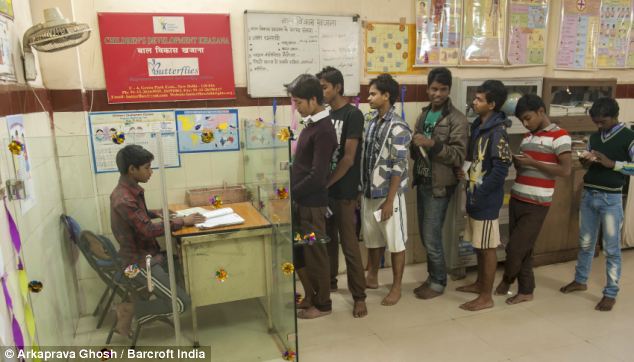- About
- Topics
- Picks
- Audio
- Story
- In-Depth
- Opinion
- News
- Donate
-
Signup for our newsletterOur Editors' Best Picks.Send
Read, Debate: Engage.
| February 20, 2019 | |
|---|---|
| topic: | Economic Opportunity |
| tags: | #Africa, #Islamic financing, #Muslim, #halal |
| located: | Kenya |
| by: | Bob Koigi |
In 2014 when the South African government took the bold step of launching a $500 million Islamic-compliant bond sale, it was looking to diversify its financing and investor portfolio. The bond was four times oversubscribed. It would follow in the steps of UK and Hong Kong as the first non-Muslim countries to issue such bonds.
Yet that development marked a key milestone in introducing Islamic related financial services that have now become a darling of governments, financial institutions investors and the 250 million Muslims in Africa. The financing that is hinged on profit and risk sharing and prohibition of paying interests is estimated at being worth $1.8 trillion globally with the Sub Saharan Africa’s contribution estimated to be $30 billion. This has also seen the proliferation of Islamic financing institutions that have grown to more than 80 in the last five years with Islamic finance being active in 21 African countries. The global value is estimated to hit the $3 trillion mark by 2020.
It is estimated that African governments issued $1.3 billion in Islamic bonds in 2016 alone.
“In a continent where millions remain unbanked and the cost of banking services continue to skyrocket, Islamic financing continues to position itself as the ultimate solution to some of Africa’s most pressing financial problems and that explains why there is this unprecedented appetite from retailers to governments. Even conventional financial service providers including banks and insurance companies are now making provisions for Islam-focused services to meet the growing need,” said Athman Sud a financial analyst based in Nairobi Kenya.
The World Bank has hailed the financing as vital in growing finance access, reducing poverty and building resilience and stability. “With a strong link to the real economy as well as risk-sharing financing, Islamic finance can help improve the stability of the financial sector. It can also bring into the formal financial system people who are currently excluded from it due to cultural or religious reasons,” the bank said in a report dubbed A Catalyst for Shared Prosperity?
At the heart of the meteoric rise in Africa has been political will with governments keen on tapping into a goldmine that has remained hitherto unexplored.
Kenya, that prides itself as a country with one of the most advanced Islam banking sectors in Africa, has three Islamic banks, a host of licensed insurance companies offering takaful, Islamic Insurance, and is now a member of The Islamic Financial Services Board, IFSB, a global body that offers guidance on Islam banking and regulatory framework. The country recently revised its VAT and stamp duty provisions to allow Sharia-compliant products to compete with conventional ones.
The largest telecommunication company in Kenya, Safaricom, through its flagship product MPESA is also working with Gulf African Bank to unveil an Islam-based mobile money service dubbed M-Sharia.
In Nigeria where Islam banking is poised to grow faster than in any other African country, the only fully-fledged Sharia bank Jaiz Bank has recorded impressive growth since it received government license in 2016. It has established a strong foothold across the 36 counties. The existence of Central Bank’s advisory council of experts that chaperones the industry and the investment guide for Islamic financing have further bolstered the sector’s growth.
The rise of advanced and strict Muslim standards like Halal have equally fanned the continental rise.
Data by Thomson Reuters indicates that in 2013 Sub Saharan Africa spent $114 billion on halal food which traditionally entailed halal meat and meat products. There has been a growing shift towards other halal products in recent times including instant and frozen foods.
South Africa, a country where the Muslims accounts for some 2.3 per cent of the entire population, has been a trailblazer in production of halal products. Up to 60 per cent of products, estimated at $72 million that are with the country’s retailers are halal certified, studies show.
And with a growing demand for private tours and a rising financially endowed Muslim population, the rise of Halal travel is shaping up to be a new, niche and untapped market with Zanzibar, Morocco, Tanzania and South Africa emerging as preferred destinations.
But the financing still faces headwinds. The age-old savings and lending mentality where the unbanked opt to keep their money at home under mattresses while borrowing from friends and relatives remains the sector’s biggest challenge. It explains why countries like Niger or Senegal that have a huge Muslim population still have one Islamic bank each. The religious and political differences in some countries like Nigeria has seen investors shy from setting up shop for fear of sparking religious conflicts.
And even with the impressive gains of the sector in the continent, it still lags behind in global contribution. The African halal market represents a paltry 5 per cent of the global industry compared to Europe’s 51 per cent while the continents Islam bonds, sukuk, issuance is only 0.5 per cent of the global issuance.
By copying the embed code below, you agree to adhere to our republishing guidelines.
